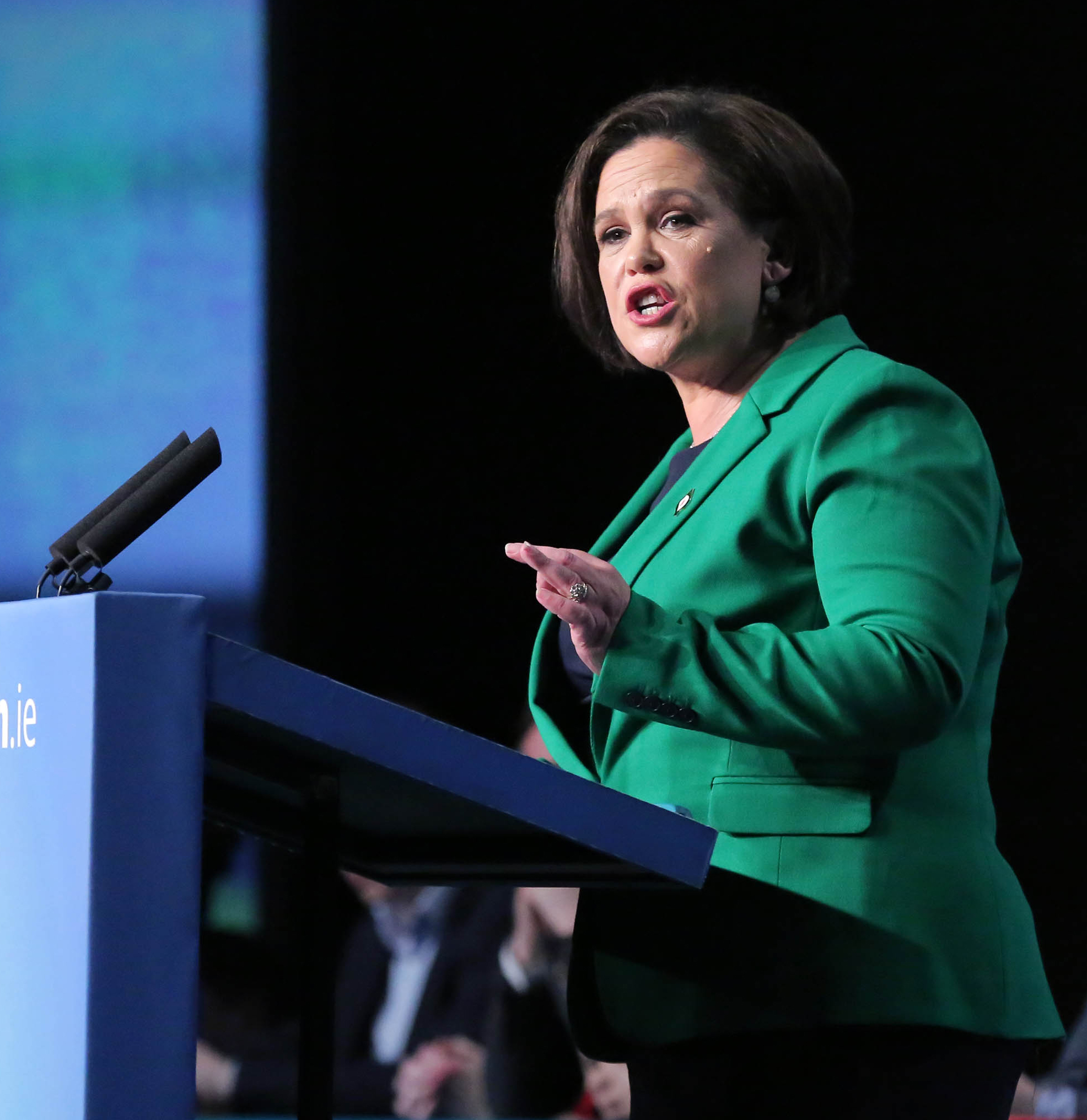Sinn Féin << shihn fayn >> is an Irish nationalist political party. The Gaelic words mean We Ourselves. Sinn Féin helped achieve an independent Irish republic. It has long been associated with the Irish Republican Army (IRA), a group that has sometimes used violence in trying to free Ireland, and, later, Northern Ireland, from British rule.

The Irish journalist Arthur Griffith formed Sinn Féin as an Irish nationalist organization in 1905. At the time, all of Ireland was part of the United Kingdom. In 1916, militant Irish nationalists took part in a failed revolt in Dublin against the United Kingdom during the Easter season. The revolt was known as the Easter Rising. British troops crushed the rebellion and executed several of the leaders. Although Sinn Féin played no role in the Easter Rising, the executions increased Irish nationalists’ support for Sinn Féin. Many survivors of the revolt joined the party. In 1919, Sinn Féin members of the British Parliament met separately as an Irish national assembly called Dáil Éireann << dawl AIR uhn >>. The leaders were Griffith, Michael Collins, and Eamon de Valera. Collins and de Valera had participated in the Easter Rising.
The Anglo-Irish Treaty, signed in late 1921 and ratified in early 1922, established the Irish Free State in the south of Ireland as a dominion (self-governing territory) of the United Kingdom. The treaty allowed Northern Ireland to remain a part of the United Kingdom. Most of the people in the Irish Free State were Roman Catholics, and most of those in Northern Ireland were Protestants. Both Sinn Féin and the IRA were divided over the treaty. The Irish Civil War began in 1922 between the treaty’s supporters, led by Collins, and its opponents, led by de Valera. Pro-treaty forces won the war, which ended in 1923.
In 1926, de Valera left Sinn Féin and formed a new party, Fianna Fáil (Soldiers of Destiny). Sinn Féin lost much of its political influence. In 1937, the Irish Free State changed its name to Eire (in Gaelic) or Ireland (in English). In 1949, Ireland’s government leaders cut all ties with the United Kingdom and declared Ireland an independent republic.
Beginning in the late 1960’s, Sinn Féin and the IRA became active again, but mainly in Northern Ireland. The IRA battled the British Army and Protestant militants. The election of Irish nationalist prisoners such as Bobby Sands to the British Parliament during the early 1980’s encouraged Sinn Féin to begin running candidates for political office.
In 1998, Sinn Féin and the other parties in the Northern Ireland conflict reached a peace agreement, known as the Good Friday Agreement. Sinn Féin representatives joined a new Northern Ireland government in which Catholics and Protestants shared power. Despite the peace agreement, civil unrest between Catholics and Protestants continued in Northern Ireland. Continued violence and accusations of an Irish nationalist spy ring within the Northern Ireland Assembly caused the United Kingdom to suspend the Assembly in 2002.
In May 2006, the Northern Ireland Assembly met for the first time since it had been suspended in 2002. British and Irish officials began working to establish a power-sharing government in Northern Ireland. In January 2007, Sinn Féin members voted to cooperate with the Police Service of Northern Ireland. This decision paved the way for restoring a British-Irish coalition government in the Northern Ireland Assembly.
In the March 2007 Northern Ireland Assembly elections, the Democratic Unionist Party (DUP) won the most seats, and Sinn Féin finished second. DUP leader Ian Paisley and Sinn Féin leader Gerry Adams met for the first time on March 26, 2007, and agreed to work together in Northern Ireland’s power-sharing government. The government began in May 2007.
Sinn Féin embraced more moderate aims in the first decades of the 2000’s, campaigning for affordable housing and health care. In 2022 elections, Sinn Féin for the first time won the most seats in the Northern Ireland Assembly.
